We ship worldwide…
Thinking About Upgrading to a Smart Lock? Let VSecure360 Help You Decide
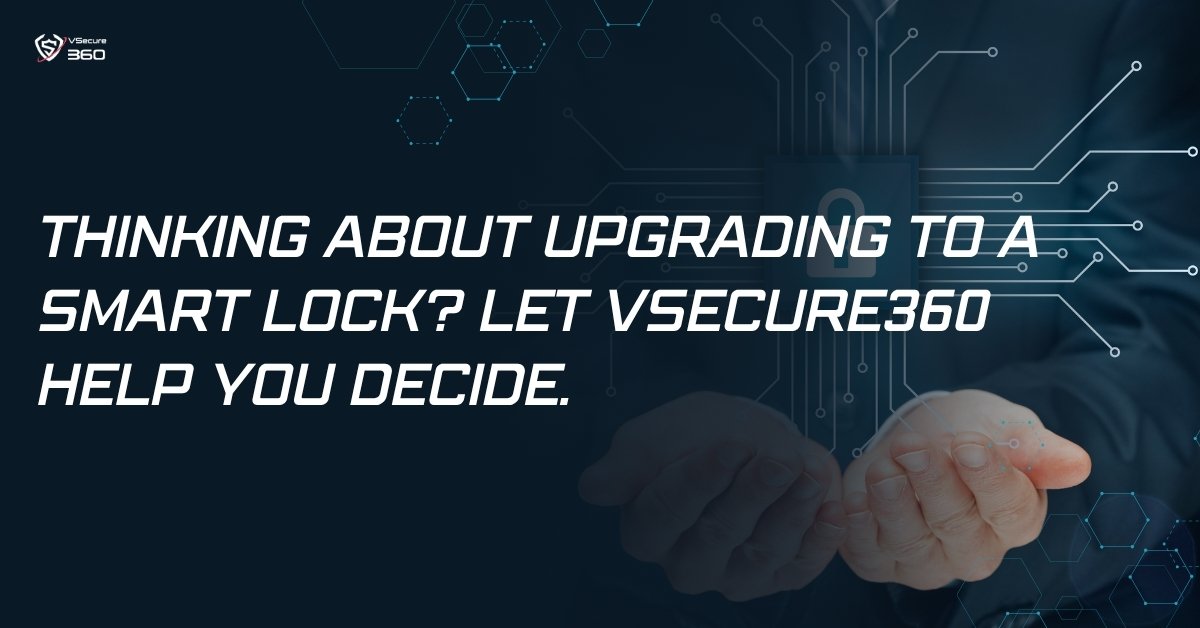
Thinking About Upgrading to a Smart Lock? Let VSecure360 Help You Decide.
With smart homes becoming the new standard in convenience and security, many homeowners and renters are now considering if it’s time to switch to a smart door lock. We understand that investing in smart security technology is a personal decision and the decision to invest in smart security technology deserves careful thought.
Vsecure360 is here to help you make the best choice. We have put together a detailed list of the questions and features you should consider before buying your next smart lock.
Question 1: How secure are smart locks as compared to traditional locks?
Traditional mechanical locks depend on a single point of defense, the physical key. The keys can be lost, copied and stolen without leaving a trace. On the other hand, smart locks strengthen security by adding digital authentication, encryption and activity awareness that gives users control and visibility both.
A modern smart lock encrypts every command between the lock and the user’s phone or keypad, preventing interception. Fingerprint sensors, PIN codes and RFID cards replace keys, and each access can be tracked through an app or local memory.
Key features include :
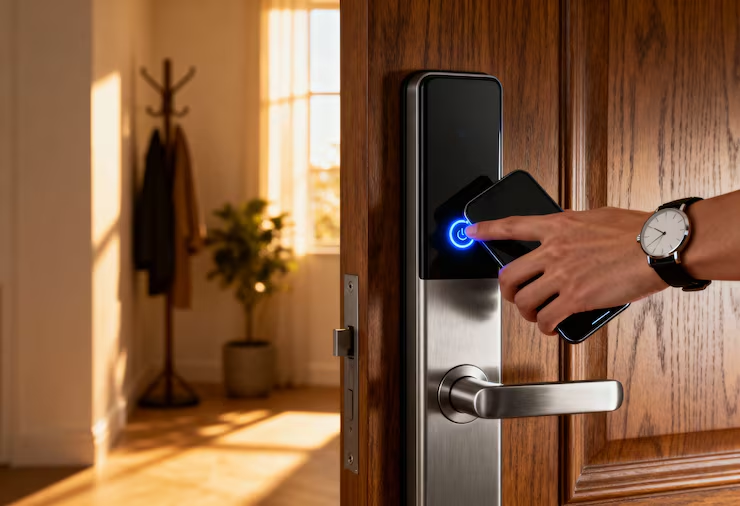
- Multi Authentication Security : Smart locks have fingerprint, RFID card and passcode access that reduce single point vulnerabilities. Products like VLockPanther-6536 also have built-in WiFi features.
- Smart Alerts : Tamper detection sends immediate notifications via the TUYA app.
- Offline Access : Critical functions such as fingerprint and code entry remain available even without WiFi.
- Local Biometric Storage : Fingerprint data is stored securely in the device chip, not on external servers.
While traditional locks depend on a single key, Vsecure360 smart locks combine physical durability and digital intelligence that offer complete peace of mind with around the clock monitoring and temper protection.
Question 2 : What are the key benefits of using a smart lock?
The evolution of door security from traditional keys to smart locks brings an entirely new dimension of convenience, flexibility and control. A smart lock doesn’t just keep your door closed, it makes your entry system interactive and personalized.
Homeowners can control access remotely, grant access to guests and monitor all activity through a smartphone. Beyond convenience, they also offer added safety, no lost keys, no hidden spares and full visibility over who enters your home.
Key features include :
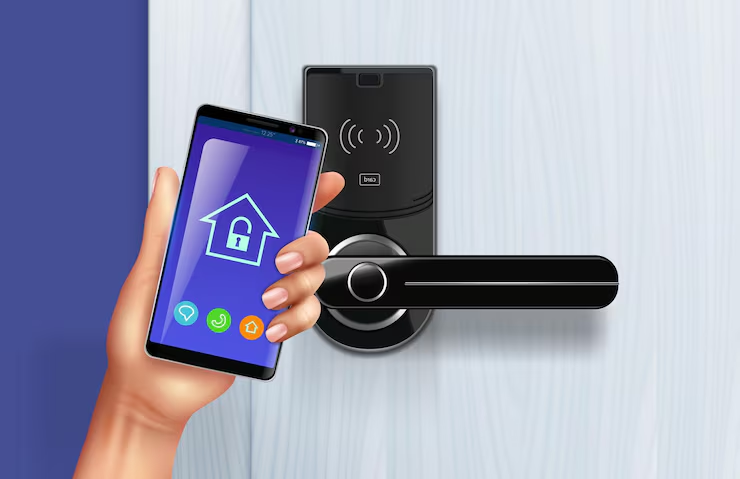
- Keyless Freedom : All models, such as Panther 6536 and Sparrow A23, eliminate the need for traditional keys.
- Remote Access Control : Lock or unlock doors anytime through the TUYA app (available on Android and iOS).
- Custom Access Levels : Set time-restricted and one-time passcodes for guests or employees.
- Activity Logs : Receive live notifications and view complete access histories.
- Elegant Design : Stylish metallic body to complement modern interiors.
- Long Battery Life : Intelligent power management ensures reliable operation.
Smart locks are ideal for homeowners, property managers and businesses. Every door becomes an intelligent access point with VSecure360 products, which simplify, speed up and improve security by fusing smart access with contemporary design.
Question 3 : How easy is it to install and set up a smart lock?
Smart locks are designed for straightforward installation, mostly as replacement for existing door hardware. Most models fit into standard door thicknesses and use common screw holes that don’t require major drilling and wiring.
A typical process involves :
- Removing the old mechanical assembly.
- Mounting the smart lock’s exterior and interior modules.
- Inserting batteries and testing alignment.
- Pairing the device with its mobile app.
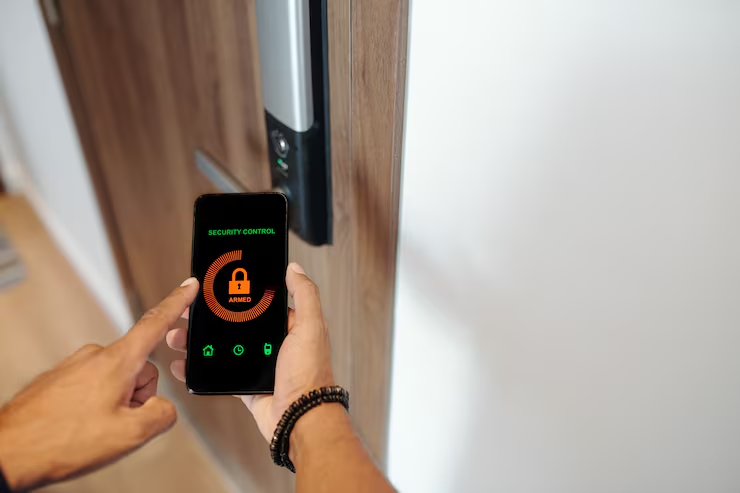
Once installed, the system operates smoothly, combining mechanical strength with digital control. VSecure360 emphasizes compatibility and DIY friendliness so technology feels approachable, not intimidating.
Question 4 : What happens if I lose my phone, forget my code, or there’s a power or network failure?
This is one of the most common concerns when adopting smart technology, and rightly so, no one wants to be locked out due to a power outage or phone issue. Smart locks are designed with multiple backup systems and fail safe features to prevent such scenarios.
Users can still access their property using offline methods such as fingerprints, mechanical keys and passcodes. Smart locks also include low battery warnings and emergency charging ports to maintain full functionality.
Common safeguards include:

- Mechanical key override for manual unlocking.
- Emergency Type-C power input, a small port that activates the lock when batteries die.
- Offline functionality : fingerprint and keypad entry still work without the internet.
- Account recovery : cloud linked apps let you disable lost phones and restore control.
- Auto lock timeout and tamper alarms for added protection.
These layers ensure users are never locked out because of connectivity or device issues. Batteries typically last six months to a year, with low-power alerts well in advance. By combining electronic intelligence with mechanical fallback, systems like those from VSecure360 remain dependable in every situation, from outages to misplaced smartphones.
Question 5 : Can smart locks integrate with other smart home devices and ecosystems?
Smart locks are increasingly part of a larger connected ecosystem, one that includes cameras, alarms, lighting and voice assistants. Integration helps users to manage security as part of their complete smart home environment providing both safety and security.
A fully integrated smart lock can communicate with other systems to automate routines. For instance, alarms can automatically disarm when the door is unlocked and locking up can trigger cameras and alarms.
Typical integrations include :
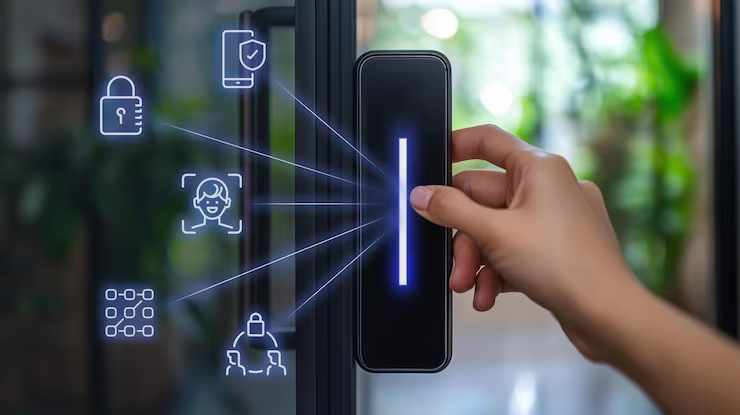
- TUYA Smart Platform : All WiFi enabled models operate within the TUYA ecosystem, syncing with compatible devices like lights and sensors.
- Voice Command Ready : Smart locks work with Google and Amazon Alexa for hands free operation.
- Smart Notifications : Get alerts for door status, battery level and tampering via the app.
- Linked Automation : Combine with VSecure360 cameras or motion detectors for synchronized protection.
- Multi Property Management : Control multiple locks and locations from one mobile interface.
By integrating smart locks with other devices, VSecure360 transforms entryways into intelligent control hubs.
Question 6 : What maintenance or checks do smart locks require?
Smart locks need minimal but regular care to stay dependable. Their electronic and mechanical parts are durable, yet a simple routine helps prevent issues.
Recommended practices :
- Battery replacement : change cells every six to twelve months or when the low power warnings appear.
- Clean sensors : wipe fingerprint readers with a soft cloth to maintain accuracy.
- Firmware updates : apply app notified updates for security improvements.
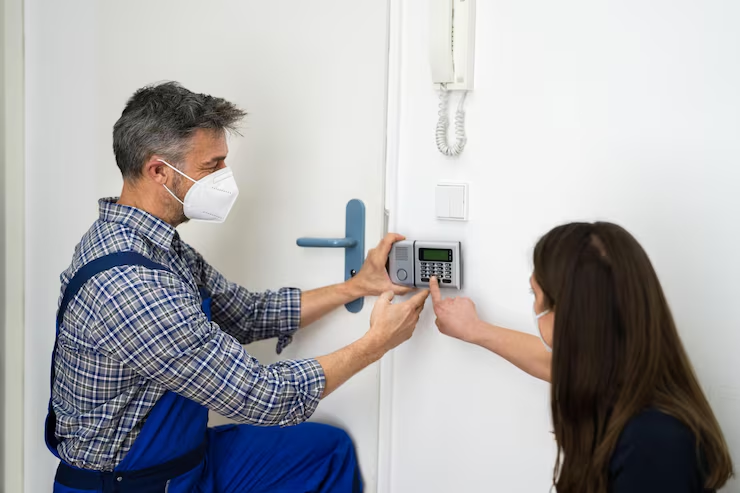
- Mechanical inspection : ensure handles and bolts move smoothly; avoid excessive force.
- Environmental awareness : protect against extreme moisture or dust accumulation.
These small habits ensure years of consistent performance. Modern locks also send smart alerts when a component needs attention. For users of VSecure360 devices, the companion app provides battery status, update prompts and access logs, making upkeep as effortless as checking a notification.
Question 7 : What trends or innovations are shaping the future of smart locks?
Biometrics, home ecosystem integration and artificial intelligence are defining the next generation of smart locks. Future models aim to anticipate behavior rather than simply respond to commands.
Emerging trends include :
- AI driven pattern learning : Automatic recognition of routine access times.
- Advanced biometrics : 3D facial and vein mapping for higher accuracy.
- Geofencing : Doors unlock as trusted users approach.
- Energy efficient components : Longer battery life and recyclable materials.
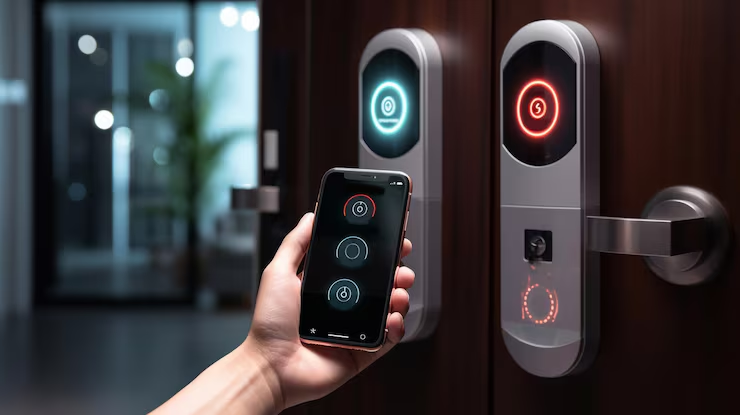
- Enhanced cybersecurity layers : end to end encryption and decentralized verification.
- Unified home platforms : Single apps managing all security, lighting and climate devices.
VSecure360 is already exploring many of these directions, focusing on reliability and privacy while embracing the connected future of home security.
 WiFi Camera
WiFi Camera
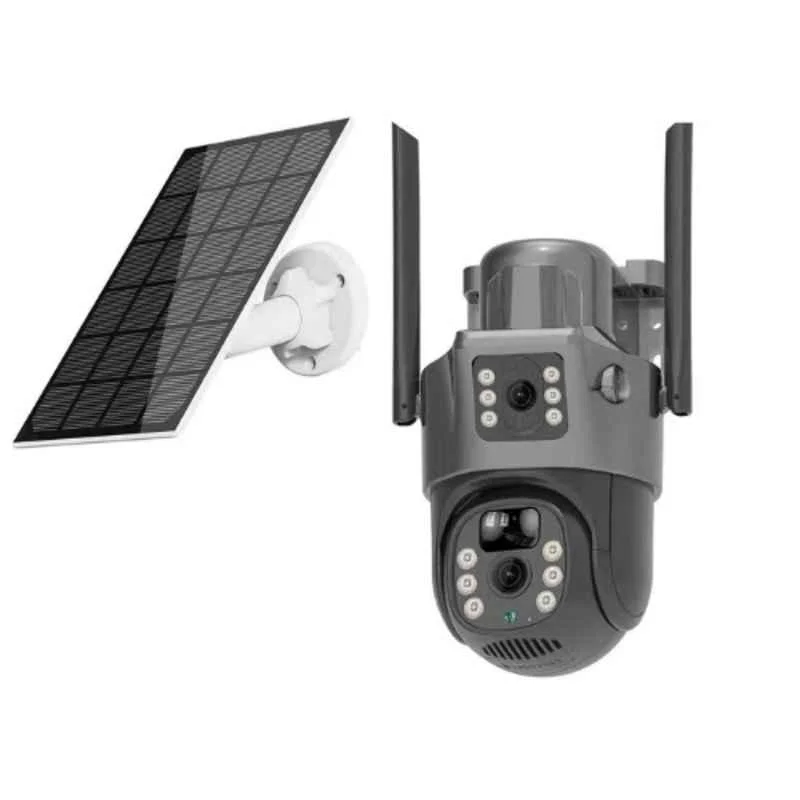 Solar Camera
Solar Camera